Zagreb Cafes Protest Opening 1st Feb Cancelled, Fines Too Severe
January 31, 2021 – The planned cafes protest in Zagreb and elsewhere, which was due to see 100 facilities open their doors on Monday 1st February in defiance of the current ban on their operations, has been cancelled. Huge fines and the threat of prison are the reason for the climb down. Minister of Economy and Sustainable Development Tomislav Coric appealed to caterers for patience.
The proposed Zagreb cafes protest organised for Monday 1st February has been cancelled. The protest was due to see some catering facilities and gyms open their doors to the public in defiance of the current nationwide ban on operations in such facilities. Around 100 businesses were said to be joining the Zagreb cafes protest.
"Although it has been rumoured that more than 100 caterers in Zagreb will open their facilities on February 1, mostly cafes, or at least start issuing coffee and drinks outside, despite the work ban, it does not seem this will (now) happen, as many have withdrawn after seeing all the consequences that could befall them if they do, " Franz Letica, president of the Zagreb Caterers' Association, told Hina by telephone after the meeting.
On Friday 29 January, the Association of Caterers in Zagreb announced the opening of at least 100 bars and Croatian cafes would open on Monday. An informal meeting of caterers, many who were due to take part in the cafes protest, took place on the afternoon of Saturday 30 January. It seems that at the meeting, plans for the cafes protest fell apart. Caterers had faced the possible punishment of fines - from 20 thousand kuna to 70 thousand kuna - and up to three years in prison for defying the law and opening during the cafes protest.
Petra Odobašić, the owner of a catering facility from Zagreb who attended Saturday's informal meeting, also confirmed to Hina there would be no mass opening on Monday, but that only a dozen caterers would continue with the cafes protest. This handful of establishments were described as being situated mostly in the Dubrava area of Zagreb. Around 80 caterers attended Saturday's informal meeting, mostly from Zagreb, but some from other areas such as Karlovac.
Appearing on Croatian television on Saturday 30 January, Minister of Economy and Sustainable Development Tomislav Coric appealed to caterers for patience.
"We hope there will be (patience)," he said when asked about the proposed act of defiance, "given that we have explained the epidemiological situation we are currently in. We need to think about the season - spring and summer - this will be the time when we can all reap the fruits of responsibility together."
New Chinese Shipment of Coronavirus Protective Gear Arrives in Croatia
ZAGREB, 30 January, 2021 - The ship Xin Tian Jin arrived in the northern Adriatic port of Rijeka on Saturday with 88 tonnes of protective gear from China, which will be used in further efforts to contain the spread of the coronavirus epidemic, the Croatian government said.
The shipment includes 151,200 swab kits, 500,000 FFP3 face masks and 480,000 protective suits. As in previous cases, the protective gear was purchased from the Chinese companies MEHECO and Sinopharm.
The value of today's shipment is $1,982,560.
Next week, the equipment will transported to the civil protection logistics centre in Jastrebarsko, about 30 kilometres southwest of Zagreb, from where it will be distributed to the coronavirus response authorities.
Hercegovac Begs Cro PM 'Open Borders So I Can Send My Wife To Her Mother'
January 29, 2021 – Lockdown is apparently taking a toll on one Hercegovac. The man from Široki Brijeg wrote to Croatian Prime Minister Andrej Plenković and begged him to reopen the borders between Croatia and Herzegovina so he could eject his wife from the family home for a month and send her to his mother-in-law's
The message from Hercegovac Ante Zovko (Ante Marinkov) was reposted on the Facebook page Imocki crnjaci where it picked up some 3 thousand likes in less than 6 hours.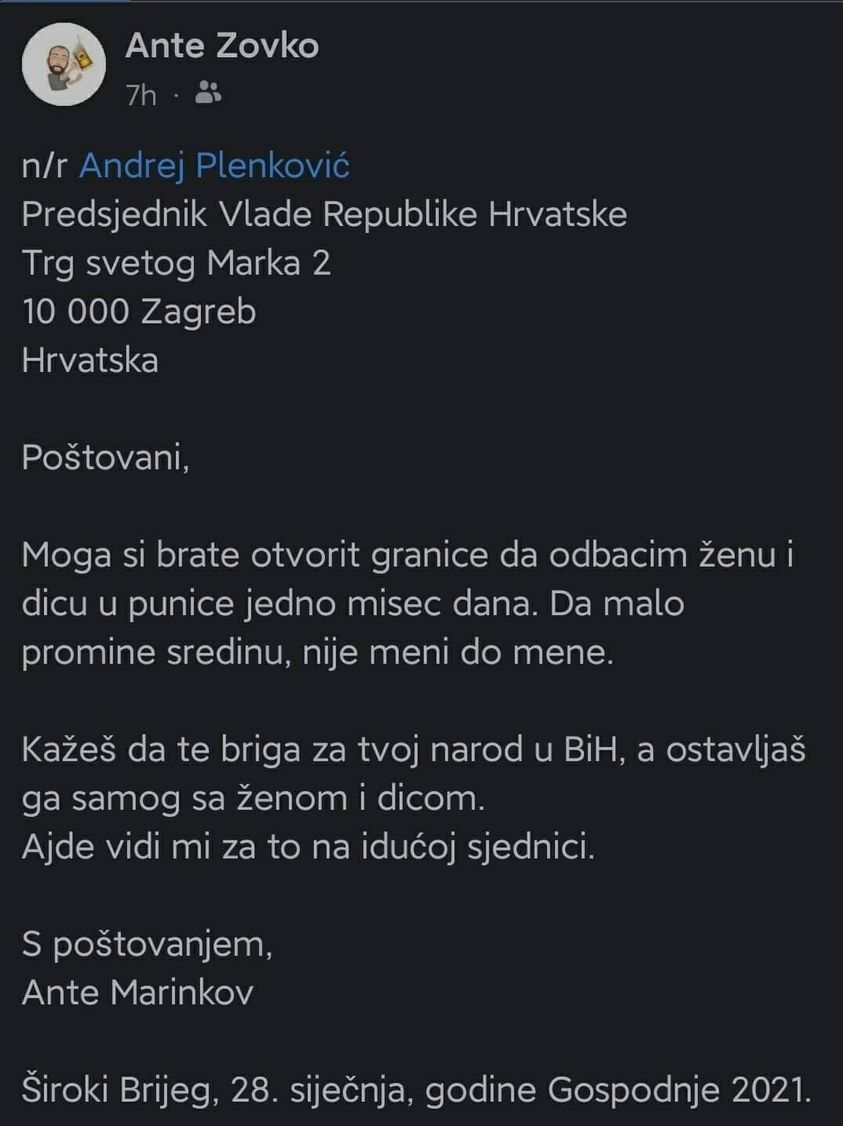
The town, Široki Brijeg, where this particular Hercegovac (a man from Herzegovina) lives is just 35 kilometres from the border with Croatia. Lots of Croatians live in this area, including this Hercegovac, his wife and his child. But not, it would seem, his wife's mother, who apparently lives in Croatia.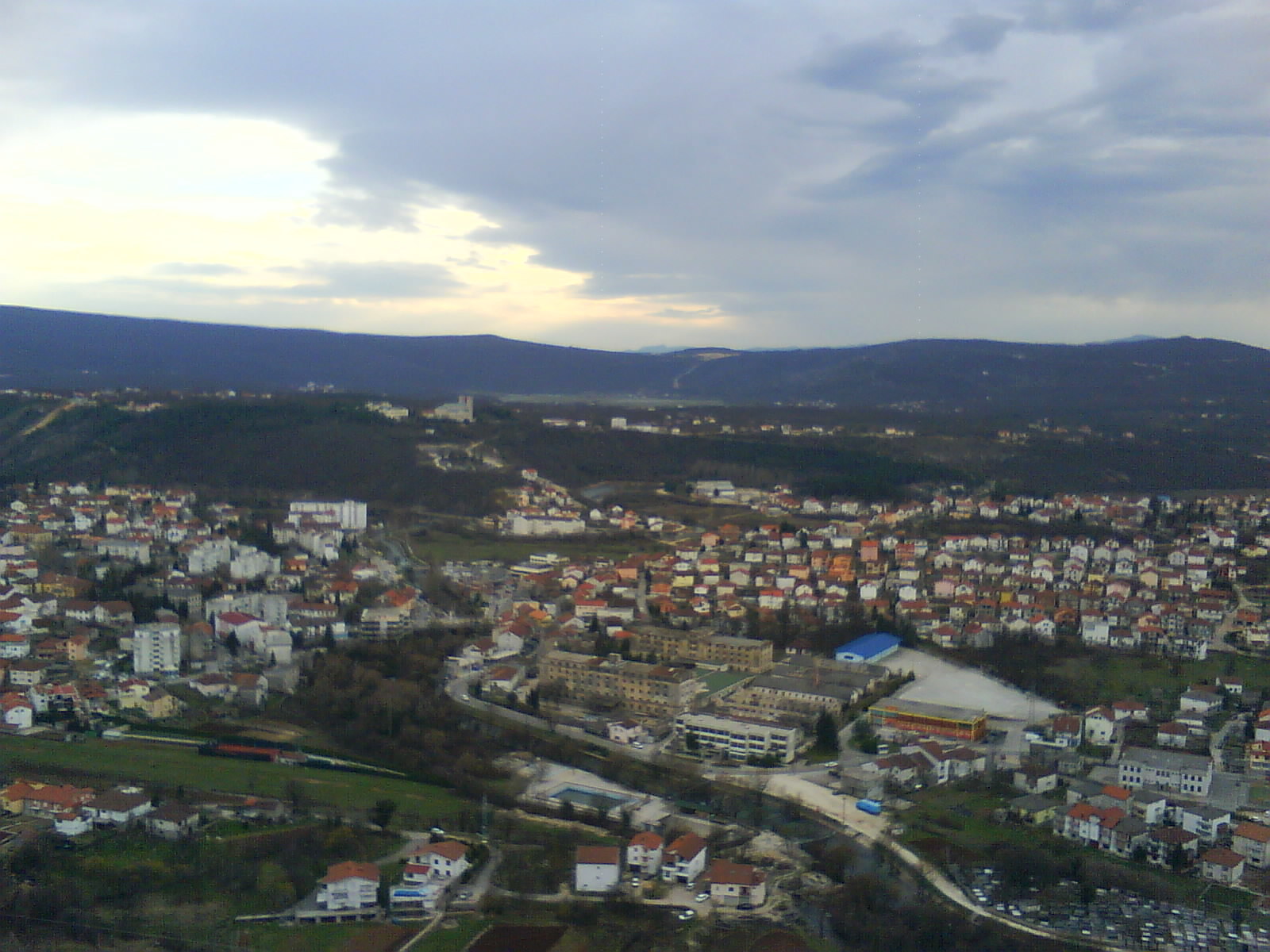 Široki Brijeg in Herzegovina, around 35 kilometres across the border from Croatia © Anto (talk)
Široki Brijeg in Herzegovina, around 35 kilometres across the border from Croatia © Anto (talk)
The Hercegovac's reason for wishing to eject his wife and child for a month was to change up the atmosphere for a time. One presumes he was not being entirely serious with his request.
The Hercegovac is not the first man to seemingly reach the end of his tether while restricted to staying in the family home. In April 2020, after just one month of being housebound, a man from a village near Osijek in Slavonia left his wife in the family home and went to live nearby in a tent.
Speaking anonymously at the time, the man's neighbour told the local SiB.hr news portal the couple have been happily married for 30 years. But, it seems the pressure of being around each other so closely during the lockdown was too much even for their strong union.
The neighbour was happy to report that since his friend pitched his tent in the nearby locale, relations between the man and his wife had actually returned to their usual levels of warmth and friendliness. The wife even came regularly to visit her husband in his tent. © John Waring
© John Waring
"My neighbour has been in his tent for a few days now,” he told the portal back in April. “He puts up a table and chairs in front. Occasionally our other neighbour comes over to drink some rakija (with him). I visited him too.”
The neighbour said his friend had quit the family home due to boredom more than anything else. Even after being happily married for 30 years, being around each other 24 hours a day was apparently just too much.
Perhaps in this more chivalrous response from the Slavonian man, Hercegovac Ante Marinkov could take some inspiration? After all, it's surely easier if one person departs from his family home in order to change the atmosphere than if two are forced to leave. Ante should find a nice spot in the fields nearby – not too close – and simply pitch up a tent. Problem solved! If he's lucky, his wife might come to visit bringing rakija.
VIDEO: Prohibition-Era Nightclubbing Zagreb, 33 Fined
January 29, 2021 – It has all the ingredients of a movie about Al Capone or Lucky Luciano in 1920s Chicago - illicit, hidden drinking dens, dancing girls, bullets, guns, gangsters and a police raid, only with a neon lighting scheme that remains fashionable strictly in Balkan clubs. Welcome to Prohibition-era nightclubbing Zagreb
It has all the ingredients of a movie about Al Capone (main picture) or Lucky Luciano in 1920s Chicago - illicit, hidden drinking dens, dancing girls, bullets, guns, gangsters and a police raid, only with a neon lighting scheme that remains fashionable strictly in Balkan clubs. Welcome to Prohibition-era nightclubbing Zagreb.
Croatian police have issued a video of a raid they undertook to shut down a Prohibition-era nightclubbing party in Zagreb. Inside the venue, they found 33 persons. None were wearing masks.
One young man at the party was caught with a pistol and bullets. If it weren't for the police's modern helmets with visors and the Balkan-cool neon lighting, you could be forgiven for thinking you were watching Eliot Ness and The Untouchables busting an illegal speakeasy. All cafes, restaurants, bars and nightclubs are supposed to be closed at the moment under measures adopted to counter the spread of Coronavirus. The pistol found by police while conducting a search on a 24-year-old at the club - Youtube screenshot
The pistol found by police while conducting a search on a 24-year-old at the club - Youtube screenshot
In the original era of America's Prohibition, under which the production, import, transportation, and sale of alcoholic beverages was illegal, Al Capone ultimately received an 11-year prison sentence for tax evasion and Lucky Luciano was looking at 30 - 50 years until he struck a deal and agreed to be deported to Italy. Thankfully, there are no mafia murders connected to this tale of Prohibition-era nightclubbing in Zagreb.
In addition to the video, the police released a statement about the prohibition-era nightclubbing raid:
"During the operation, a total of 33 people were found, identified and checked in said facility. No coercive measures were used during the actions of the police officers. 33 people were found not wearing protective masks, which is why the police officers issued them three Notices of Misdemeanor and 30 fines were collected for violations of Article 47, paragraph 2, item 9 of the Law on the Protection of the Population from Infectious Diseases.
Furthermore, for one of the caught persons, a 24-year-old was searched and a gas pistol was found in his possession, for which he was issued a Mandatory Misdemeanor Order for the offence under Article 27, paragraph 2 of the Law on procurement and possession of weapons by citizens. Bullets found by the police at the prohibition-era nightclubbing scene in Zagreb
Bullets found by the police at the prohibition-era nightclubbing scene in Zagreb
Also, officials of the Directorate of Civil Protection found violations of epidemiological measures contrary to the Decision on necessary epidemiological measures restricting gatherings and introducing other necessary epidemiological measures and recommendations to prevent the transmission of Covid-19 through gatherings. Due to performing catering activities contrary to the decisions of the Civil Protection Headquarters, officials of the State Inspectorate, Tourist Inspection, Zagreb Regional Office found a violation of Article 9A of the Catering Act and issued an oral decision banning the work, and the facility was sealed for at least 30 days. Misdemeanor proceedings will be initiated against the legal and responsible person.
As part of the criminal investigation, the 45-year-old owner of a catering facility was taken to the official premises of the Zagreb Police Administration for a criminal investigation on suspicion of having committed the criminal offence of "Spreading and Transmitting an Infectious Disease" under Article 180. He will be handed over to the custody supervisor after the criminal investigation is completed”
Prohibition in the United States took place in a 13 year period between 1920 and 1933. It is highly unlikely that the bars and cafes of Zagreb will be asked to remain closed for such a length of time. This is not the first instance of Prohibition-era nightclubbing taking place irrespective of epidemiological guidelines in Zagreb. In late November 2020, Croatian media (including Juarnji List) widely reported on police raids that took place at two Zagreb venues, even though measures adopted in the fight against the pandemic were at that time more relaxed.
What Kind of Life Awaits Croatian Anti-Vaxxers Who Refuse Vaccination?
December 29, 2020 – The arrival of COVID-19 vaccines in Croatia has been met with much relief by many people. But, not everyone is happy. Conspiracy theorists - those who favour disreputable sources and 'whispers on the wind' to real science - are reticent, some even angry. So, what kind of life awaits Croatian anti-vaxxers who refuse to take the vaccine?
The people who inhabit the lands now known as Croatia have a long history of being pushed around. For this, they cannot be blamed. Greatly outnumbered by the occupying armies of some of the most powerful empires of all time - the Romans, Venetians, Austro-Hungarians and Ottomans - their rebellions against such overlords have been relatively small in number. Their default setting has been to visit the kafana at the end of the day and moan, grumble, gossip - perhaps even plot - against those who make their lives disagreeable.
Croatia was finally freed of its last imposing masters over two decades ago. But, true to form, the grumbling in the kafanas has continued. Except, now that the kafanas are all closed in response to Coronavirus, the moaning has moved almost exclusively to the internet. And, it has reached a shrieking pitch.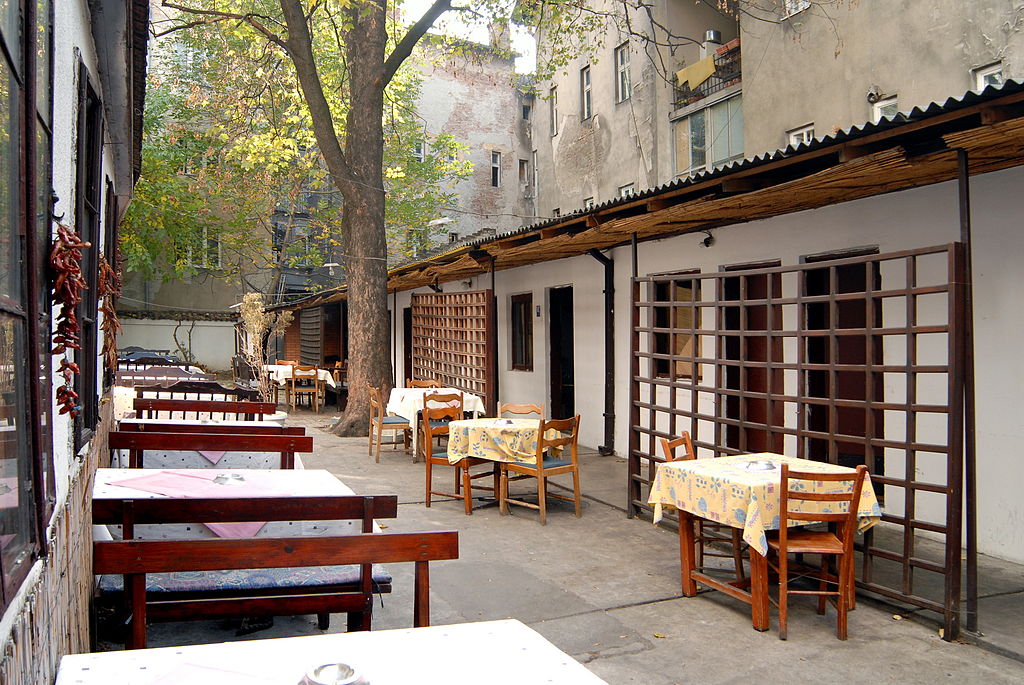
The arrival of COVID-19 vaccines in Croatia has been met with much relief by many Croatians. The news of the first vaccinated citizen, followed by the first vaccinated healthcare workers, was also well received. You can tell this from the overwhelmingly large amount of 'likes' such news generates when posted to social media. These warm welcomers of good news in Croatia could be best described as the silent majority. And, in the same way most Croatians lay subdued for lifetimes under bullying empires, this silent, sensible majority is drowned out by the deafening vitriol of the unhinged within the comments sections underneath.
These arch-moaners appear in the comments on most issues, railing against the increasingly modern ways of the world. On the issue of Coronavirus and the incoming vaccines, it is the Croatian anti-vaxxers who are angrily dominating the discourse.
It appears near pointless to debate with them. They are not ones for science, facts nor reasonable debate. Not for them are the reports of scientific journals, the BBC, The New York Times, The Guardian, Al Jazeera, or The Washington Post. Instead, they cite the most spurious of sources – a website nobody else has heard of, a document written by a friendless doctor from the Texas farming community who has a curiously photoshopped profile picture, a Youtube video made for the same price as a hamburger and narrated by a 17-year-old from the outside toilet. There's no point telling them that the vaccines coming onto the market were actually designed back on January 13, just two days after the Coronavirus genetic sequence had been made public and that it has taken until now to produce them, due to stringent testing on their safety. No. Because for Croatian anti-vaxxers, whispers on the wind, the horoscopes, crystal ball of the fortune-teller and the inescapable stare of Braco are just as reliable - if they're telling you what you want to believe. For whichever lunatic theory you want to adopt, you can look online and you'll be sure to find some crackpot to back it up. The internet is the great leveller for Croatian anti-vaxxers as well as everywhere else - a place where deposed Nigerian royalty who want to put money in your bank account have just as much credence as an 80-year-old media title with a blemishless reputation.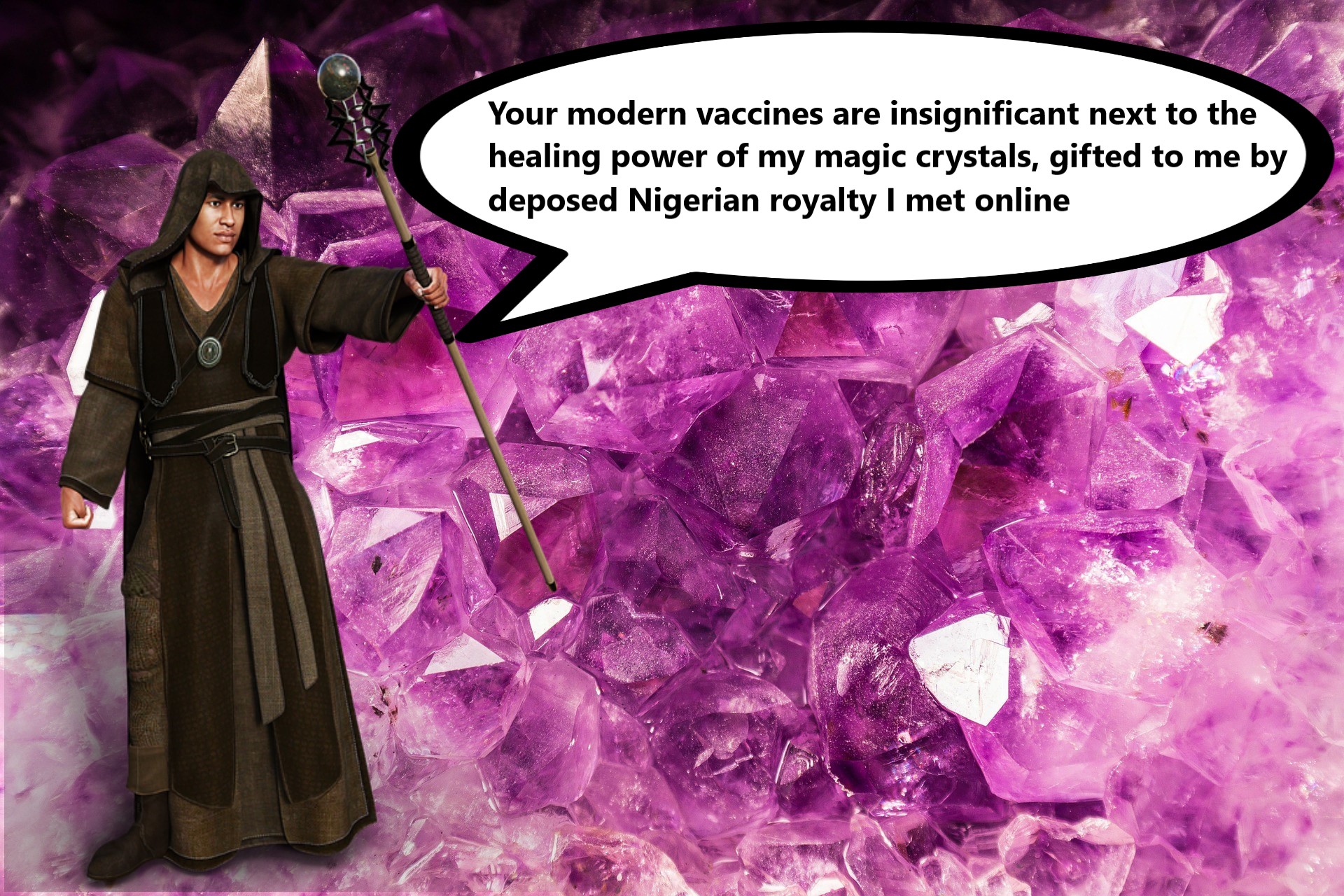
Of course, while life is too short to even debate with anti-vaxxers in Croatia or anywhere else, that's not to say they are undeserving of sympathy. In our recent interview with a doctor working on the Coronavirus frontline in a Croatian hospital, they generously raised an interesting defence of the tin-foil hat brigade - “It's not always the content of the conspiracy theory that appeals to these people as much as it is their inability to accept facts – the truth – because they have little faith in the authorities that are telling them.”
Finding fault in authorities is far from unique to Croatia. Yes, there is a certain amount of kafana moaning and grumbling all over the world, and often for good reason. Politicians are more than aware of this. And, in an era of widespread voter apathy and low voter turnout, where yet another silent majority has the potential so easily to change the names of those who govern, this is exactly why politicians will abstain from making the Coronavirus vaccines mandatory. With things as they currently stand, it is near inconceivable that Coronavirus vaccines will be made compulsory in Croatia or in any other western democracy. Good news for Croatian anti-vaxxers? Well, not quite, because it is highly likely that the private sector will be among the greatest of persuaders for vaccination. It is not unthinkable that we are about to enter a wholly new two-tiered society – the vaccinated and the unvaccinated. And signs of what that life might look like for Croatian anti-vaxxers are not good. They are not good at all.
“Vaccination could become one of the measures that would make it possible to come to events,” Stefan Breitenmoser, general manager of the Professional Association of Swiss Organizers of Concerts, Events and Festivals, told Sonntags Blick in the past week. In Switzerland, vaccination began on Wednesday and it is free. It is not only the entertainment events industry that is considering the measure - the Swiss Football League similarly said it is giving it serious consideration. Professional sports and the events industry have lost billions during the pandemic. The 2021 Olympics hangs on a knife-edge in regards to accepting audiences into its stadiums – it has already been delayed by a year. It is highly conceivable that access to all large events in future will be dependent on proof of vaccination. The National Stadium in Japan was due to host some of the key events of the 2020 Summer Olympics. The whole event has been delayed until summer 2021, in response to the pandemic © Arne Müseler
The National Stadium in Japan was due to host some of the key events of the 2020 Summer Olympics. The whole event has been delayed until summer 2021, in response to the pandemic © Arne Müseler
In an interview on N1 television in Croatia over recent days, epidemiologist Branko Kolarić - a member of the Scientific Council of the Government of the Republic of Croatia - echoed similar thinking. He stated that a list of the vaccinated will be carefully maintained, most likely through some kind of e-documents, and although vaccination will not be mandatory, vaccination will bring some benefits - such as air travel, group gatherings and attendance of concerts and festivals. You are surely not going to see police or soldiers checking your vaccination status at the entry to a dance music festival in Dalmatia. But, it is highly likely that event organisers will insist on proof of vaccination before granting entry. Even if they don't wish to, it is more than conceivable that they would not be granted the necessary licenses nor insurance without assuming such a position.
Another industry that has lost billions in the pandemic is the travel and tourism sector. Little surprise then to have found budget airline Ryanair launching a new campaign of 'Jab and go' over the last few days. The suggestion is crystal clear – get vaccinated, you can come on our planes, we'll allow you to travel. Ryanair will certainly not be the last airline to assume responsibility for vetting passengers' vaccination status. Croatian anti-vaxxers had better be really happy to be here, because international borders may well be permanently closed for them while they remain unvaccinated.
So, a life with no spectating at big sports events, no more large concerts or music festivals and no more international travel is what seems to be just around the corner for Croatian anti-vaxxers. Sounds harsh, unpleasant. But what if it extends to libraries, schools or even hospitals? We don't yet know anything concrete about the lower tier of existence Croatian anti-vaxxers may choose to dwell in. But, it's not where I want to live. Perhaps they'll even be forced to drink exclusively in their own anti-vaxxer kafanas? For sure they'll be easy to identify – they'll be the ones from which the loudest moans are coming.
The views expressed in this article are solely those of the author and are not necessarily shared by Total Croatia News
Daily Says Coronavirus Epidemic Weighing on Healthcare Budget
ZAGREB, Dec 7, 2020 - The coronavirus epidemic has been weighing on the healthcare budget, with the cost for the HZZO health insurance institute in 2020 expected to amount to one billion kuna, the Jutarnji List daily reports on Monday.
Over a period of only one week, the costs of the health system related to the coronavirus epidemic have risen by a staggering HRK 80.5 million (€10.73 million), and they are expected to be even higher on a weekly basis in the coming period and exceed one billion kuna by the end of the year, the daily says.
According to HZZO data, the total costs related to COVID-19, which cover the costs of testing, treatment and sick-leave allowances, amounted to HRK 258.2 million in the period from February 25 to September 2.
In the last three months, the costs have tripled and on December 4, they totalled HRK 766.3 million.
Considering the epidemiological situation, the growth of costs is as expected, yet their growth rate, as indicated by a weekly analysis, is higher than the one predicted by experts.
In the week between November 20 and 27, COVID-19-related costs grew by around HRK 50 million, and already in the following week they totalled more than HRK 80 million.
In the first six months of the epidemic, the costs for the HZZO totalled HRK 258.2 million, the daily says.
The newspaper collected the latest data over the past three weeks considering that they are updated every Friday, and according to the latest indicators, in the period between the start of September and December 4, the costs grew by as much as HRK 508.1 million.
Both in the first and the second wave of the epidemic, the cost of testing accounted for the largest portion of the total costs, Jutarnji List says.
(€1 = HRK 7.543619)
Croatia is one of the Most Safe Countries in 2021 for Visitors
December 4, 2020 – Accepting all known knowledge of the Coronavirus risk and the announced vaccines, security and risk experts International SOS have published their latest, annual Travel Risk Map. It says Croatia is one of the most safe countries in 2021 for visitors
With the end of the life-halting Coronavirus in sight, thanks to several effective vaccines announced, which country would be best to visit next year? Well, Croatia is one of the most safe countries in 2021 for visitors.
It's been a long, difficult year for everyone. It's maybe hard to believe if you live in Croatia and haven't much travelled outside the country, but the residents of Croatia have had it no more difficult than anywhere else. With only around 4 million inhabitants, there's lots of space in Croatia to move around.
Take in comparison Britain's London. That one city (1,572 km²) alone has 9 million people. Croatia has 56,594 km² for less than half the number of people. But, this generous amount of space in which to move around is not the only reason Croatia is one of the most safe countries in 2021 for visitors.
On 2 December 2020, Total Croatia News published the annual report based on the Global Terrorism Index, identifying Croatia is one of the most safe countries in 2021 in regards to the absence of terrorist threat and effect. Now, according to the latest annual Travel Risk Map, it has been designated that Croatia is one of the most safe countries in 2021 for visitors.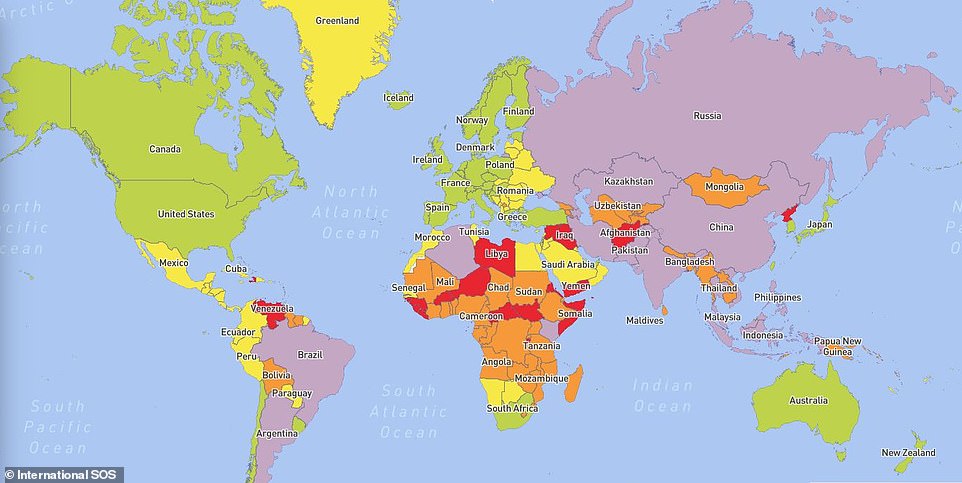 Security and risk experts International SOS's Travel Risk Map for 2021.
Security and risk experts International SOS's Travel Risk Map for 2021.
The map, created by security and risk experts International SOS , ranks the safety of countries across the globe taking into account medical, security and road risks. It assesses the risk of political violence, social unrest, and the threat of violent and petty crimes – and, most importantly this year, the impact of the pandemic.
For the first two categories, countries are given a rating out of five, while road safety is rated out of four based on the mortality rate per 100,000 people. The places with the highest risk level for security issues are mostly in Africa, with South Sudan, Mali, Yemen, Somalia and the Maiduguri region of Nigeria listed under the most dangerous, along with the Donetsk and Luhansk regions of the Ukraine.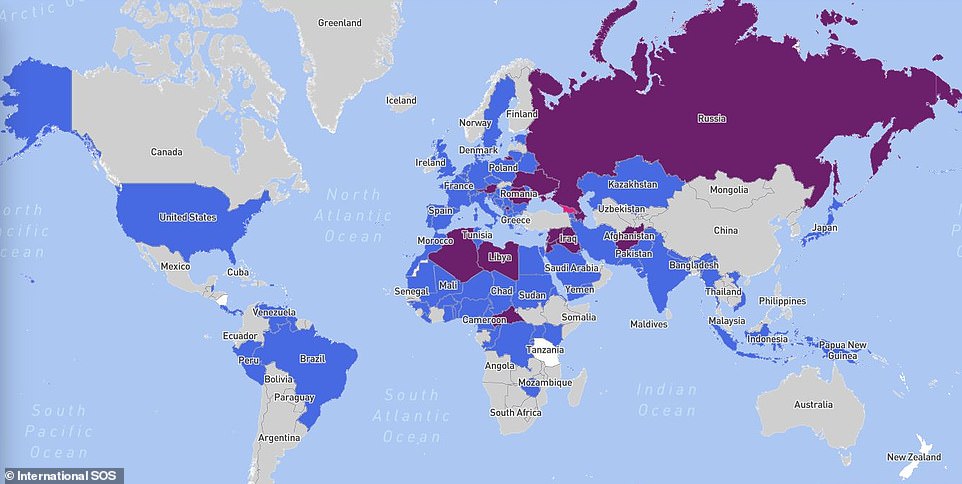 International SOS's map showing the countries with the most and least Covid-19 disruption. Very low-risk countries are marked in white, low risk in grey, medium in blue, high in purple and very high in pink.
International SOS's map showing the countries with the most and least Covid-19 disruption. Very low-risk countries are marked in white, low risk in grey, medium in blue, high in purple and very high in pink.
Very few countries rank above Croatia in the new safety map, New Zealand, Tanzania and Nicaragua among them, meaning Croatia is one of the most safe countries in 2021 for visitors.
For the residents of crowded cities elsewhere in Europe, Australia or the USA who have felt more than restricted in 2020, it might be worth remembering when planning next year's escape that Croatia is one of the most safe countries in 2021 for visitors.
Pandemic Has Affected Croatia-Russia Economic Relations, Forum Hears
ZAGREB, November 12, 2020 - The COVID pandemic has affected Croatian-Russian economic relations, with trade dropping 21% in the first seven months of the year, and the focus should be on turning the trend around, the Croatian Chamber of Commerce (HGK) said on Thursday in a press release on a Russian-Croatian banking forum.
In the first seven months of 2020, trade between the two countries totalled US$ 228 million, down 21% on the year. We must focus on turning the trend around and work together on returning to the volume of trade which used to exceed $2 billion, the online forum was told.
Banks must play a key role in that, said Josip Zaher, the HGK vice president for commerce and financial institutions.
Croatian Ambassador to Russia Tomislav Car said relations between the two countries were slowly becoming dynamic.
"Both the interstate and economic elements are looking forward, which is a message of encouragement to all of us. However, behind all that are people with their knowledge and ambitions," he said, adding that the embassy and the HGK's Moscow office were always at entrepreneurs' disposal.
Russian Ambassador to Croatia Andrey Nesterenko said all efforts must be focused on the normalisation of relations, with emphasis on banking.
In these difficult times it is very important to continue with activities and maintain continuity in relations. It is also important to learn from one another, exchange ideas and thus find new opportunities in this crisis, he said, announcing that the intergovernmental commission on economic cooperation would meet soon.
The forum's main topic was banking in conditions of the coronavirus pandemic.
Zaher said commercial bank assets at the end of June totalled HRK 444.3 billion, up 4.4% from the end of 2019, while bank profits plunged 48% annually.
The forum was organised by the Association of Russian Banks and the HGK, with the support of the Russian and Moscow Chambers of Commerce and Industry.
(€1 = HRK 7.5)
Prime Minister Andrej Plenkovic Calls for Reform of UN
ZAGREB, Sept 25, 2020 - The crises that have impacted the world in 2020 show that commitment to multilateralism is more relevant than ever, Croatia's Prime Minister Andrej Plenkovic said in an address at the 75th session of the United Nations General Assembly, calling for reform of UN.
The crises of 2020, such as the coronavirus pandemic and the consequent economic downturn, "clearly showed that our collective commitment to multilateralism is more relevant than ever," Plenkovic said via video link.
The current crises must not lead to isolationism in the international community but motivate readiness for cooperation in the spirit of solidarity and mutual support, and no other organization is better placed than the United Nations for global delivery of the goals of international cooperation, he said.
That is why "we need a United Nations fit for the 21st century," Plenkovic said, calling for a reform of UN, including its founding document, the UN Charter, as well as of the Security Council, the most powerful body in the UN in which relations reflect the situation at the end of World War II.
"Our organization has to maintain its core values and principles on which it has been founded but it must also reflect the realities and needs of our times," he added.
Critics often call out the UN for allegedly irrational spending, slowness to act, failure to implement its decisions, and bias in adopting them.
The organization's budget last year lacked 768 million of a total of 2.85 billion US dollars because 51 countries did not meet their financial obligations, including Brazil and the USA, Reuters has reported.
Experts underline that the financial problems are a symptom of a broader crisis of confidence in that institution.
Equality of Bosnia and Herzegovina Croats
Apart from going down in history as a year of crises, 2020 is also a year of anniversaries - the 75th anniversary of the UN and the 25th anniversary of the Fourth World Conference on Women and the Dayton-Paris Peace Agreement, which put an end to the "bloodiest war in Europe since the Second World War," said the Croatian PM.
Meanwhile, this part of Europe "has profoundly changed for the better but some problems still prevail and merit our full attention".
Croatia believes that the anniversary of the Dayton peace agreement should be used to reflect on its achievements as well as the contemporary situation in Bosnia and Herzegovina, said Plenkovic, calling for full equality for Croats as a constituent people in Bosnia and Herzegovina as well as for the adoption of appropriate election law to prevent electoral engineering.
Plenkovic recalled the Zagreb Summit of 20 years ago and the second edition of that event, held this year online during Croatia's EU presidency, as well as the country's unequivocal support for the European perspective of Western Balkan countries.
Looking back, much has been achieved, much has changed for the better. Looking ahead, sincere reconciliation is essential to regional stability. It can be built only on truth and grounded in facts, in conjunction with finding all the remaining missing persons and rendering justice for all victims, he said.
Plenkovic also stressed in his address that he was proud that for the first time ever Croatia has a candidate for a judge at the International Court of Justice - an international law professor and vice-dean for international cooperation of the Zagreb University Faculty of Law, Maja Sersic.
"Besides her professional qualities, we believe that her election would also be important for achieving a better gender balance and fairer participation of states within the Court's composition."
Plenkovic also recalled that Croatia was dealing with the consequences of a disastrous earthquake that hit Zagreb in March and thanked world leaders for sending messages of support and offer assistance.
Vaccine for all and protection of the planet
Plenkovic welcomed the UN's resolution on a "Comprehensive and Coordinated Response to the COVID-19 Pandemic" and said that "it clearly demonstrates the need for a global joint approach in addressing the impact and consequences of the pandemic."
"The vaccine must be available to as many as possible and we should spare no effort to make it so," he said.
He also spoke about "the perils of global climate change, which will be the challenge of this century."
He said that world leaders must not ignore the fact that "the past five years hold the highest record for global ocean temperatures", noting that "the oceans play a central role in regulating the Earth's climate."
"Ocean plastic pollution is also unfolding at an alarming rate," he added.
"If we do not act now, the damage (to our planet) will become irreparable," he said.
"Let us, therefore, unite as nations and assume our responsibility to create a healthier, equal, and more sustainable world for the generations to come," Plenkovic said.
For the latest travel info, bookmark our main travel info article, which is updated daily.
Read the Croatian Travel Update in your language - now available in 24 languages
Join the Total Croatia Travel INFO Viber community.
Croatian and Hungarian Ministers Talk Impact of Pandemic on Education System
ZAGREB, Sept 24, 2020 - Croatian Minister of Science and Education Radovan Fuchs on Thursday met with Hungary's Minister for Human Resources Miklos Kasler to talk about impact of pandemic on education system.
The two ministers discussed the challenges in education as a consequence of the coronavirus pandemic, the ministry said in a press release.
Minister Fuchs presented Croatia's experience in planning the new school year and the option of three models to conduct classes based on epidemiological circumstances, the ministry said and added that they also discussed continuing cooperation and defining new cooperation programmes in the field of education and science.
The ministry notes that the two ministers discussed possible joint science projects, particularly as part of European research programmes.
The ministers agreed that all countries are faced with similar challenges as a consequence of the pandemic which require common responses to this crisis, and concluded that it is essential to continue close cooperation in the coming period.
For the latest travel info, bookmark our main travel info article, which is updated daily.
Read the Croatian Travel Update in your language - now available in 24 languages


